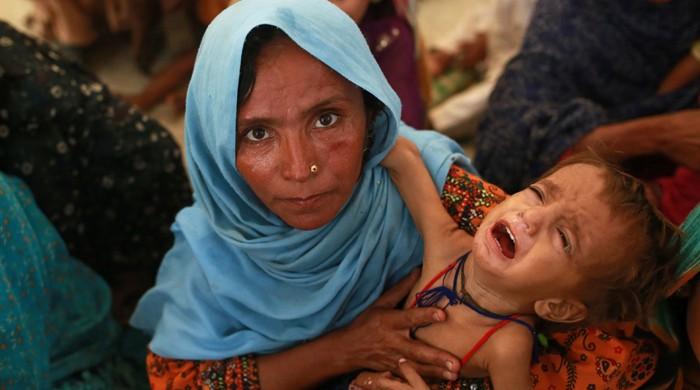Pakistan set to launch Rs500 billion nutrition plan
Dr Zafar Mirza says programme will use inter-sectoral collaborations to implement 12 most proven nutrition interventions
January 09, 2020

Pakistan is set to launch a Rs500 billion programme to tackle the consequences of the country’s high burden of stunting and childhood malnutrition, reported The News.
“We are developing the largest public sector project in Pakistan’s history focused on human nutrition,” Special Advisor to the PM on Health Dr Zafar Mirza said while addressing a event in Islamabad regarding the Sustainable Development Goals (SDG) initiative.
The event, ‘The Health and Health Related SDGs: Current Status and Opportunities in Pakistan’, was jointly organized by the Ministry of National Health Services, Aga Khan University, Aga Khan Foundation-Canada, the University of Toronto, and Canada’s International Development Research Centre.
It was the third such meeting of policymakers and development experts which seeks to develop integrated, comprehensive plans to help Pakistan meet its development priorities.
Dr Mirza said the project, which was in the closing stages of receiving approval under the Public Sector Development Programme, will use inter-sectoral collaborations to implement the 12 most proven nutrition interventions.
He urged the experts from all sectors, including academics and researchers, to join hands to overcome the country’s development challenges.
Dr Mirza further stated that policies focused on tackling the threat of climate change was another priority area for the government. “Climate change represents a threat to our health, agriculture and human survival,” he remarked.
Earlier, in his opening remarks, Professor Zulfiqar Bhutta, founding director of AKU’s Centre of Excellence in Women and Child Health, noted that Pakistan has another decade to achieve targets under the SDG.
“The SDGs are inter-related and span the economic, social and environmental spheres,” Bhutta said. “Achieving targets under the health-related SDGs and addressing our malnutrition crisis requires attention to be paid to other important sectors such as agriculture, water and sanitation, female empowerment and education – especially that of girls – as well as other areas that influence the country’s health sector.”
Pakistan has committed to achieving 169 SDG targets by 2030 that cut across interdependent policy areas such as healthcare, nutrition, education, poverty, gender equality and others.
The one-day event also included sessions that saw over 100 experts from a variety of industries break into working groups to prepare policy recommendations for the health ministry to pursue.
Originally published in The News











